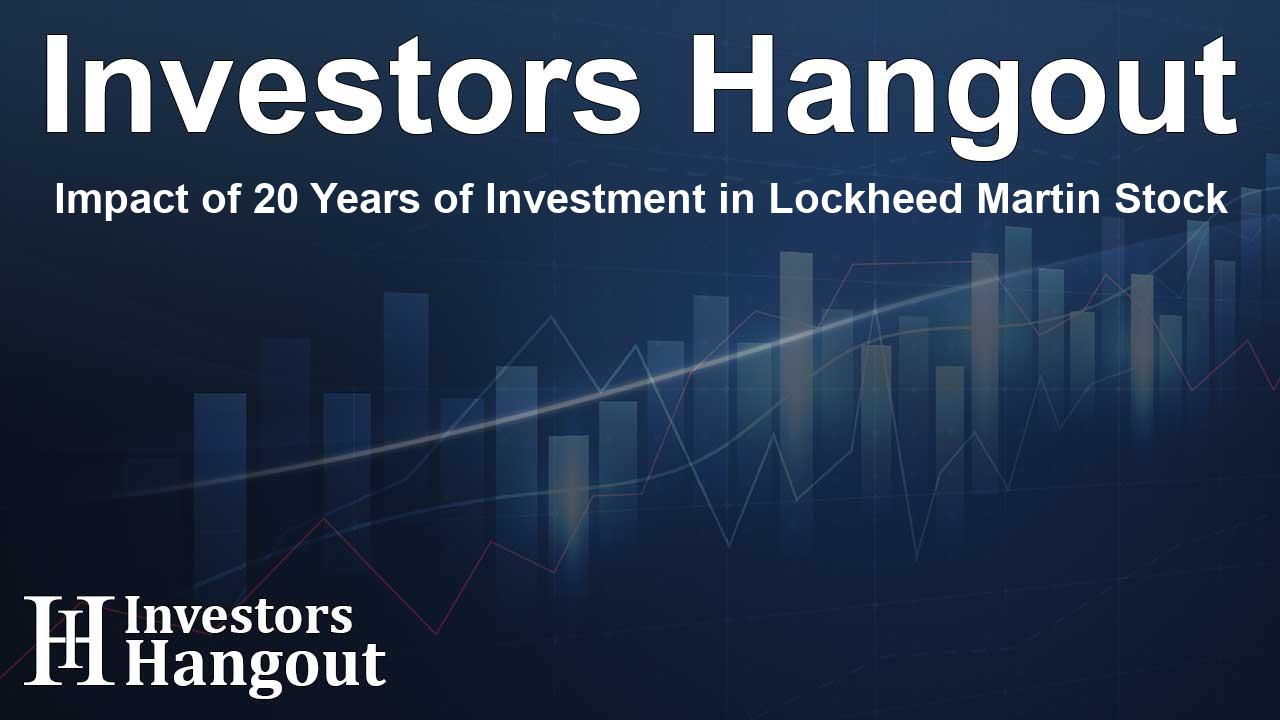Impact of 20 Years of Investment in Lockheed Martin Stock

Understanding Lockheed Martin's Investment Journey
Lockheed Martin (NYSE:LMT) has consistently outperformed the market over the past two decades, showcasing the remarkable power of long-term investments. With an impressive annualized return of 11.13%, investors have witnessed substantial growth compared to the broader market, which grows at a slower rate.
A Historical Look at Returns
If an investor had chosen to invest just $100 in Lockheed Martin stock twenty years ago, the value of that investment would be approximately $821.12 today. This is based on the current price of Lockheed Martin stock at $502.26. Such significant growth emphasizes the value of investing in stable, established companies.
The Significance of Compound Growth
The essential takeaway from this story is the profound impact that compound returns can have on investments over time. What may seem like a modest sum can transform into a substantial amount when compounded yearly. Lockheed Martin's consistent performance exemplifies this principle in action.
Why Choose Lockheed Martin?
Lockheed Martin is not just a significant player in the defense sector but also a leader in technology and innovation. The company’s initiatives in advanced aerospace technologies and defense solutions make it a desirable choice for investors looking for longevity and growth potential.
Current Market Position
As of now, Lockheed Martin holds a market capitalization of $117.26 billion, reflecting robust investor confidence and its strong market position. The company’s consistent performance has made it a reliable option for both seasoned investors and newcomers alike.
Investment Strategies with Lockheed Martin
Investors interested in stocks like Lockheed Martin should consider a long-term approach. By holding onto their investments, they can leverage the stability and growth potential of the company, particularly in an environment where defense spending is likely to rise.
Frequently Asked Questions
What is the annualized return of Lockheed Martin?
Lockheed Martin has produced an average annual return of 11.13% over the past 20 years, outperforming the market.
How much would a $100 investment be worth today?
An investment of $100 in Lockheed Martin stock 20 years ago would be worth approximately $821.12 today.
Why is Lockheed Martin a good investment?
Lockheed Martin is known for its leadership in technology and innovation within the defense industry, making it a stable option for long-term investments.
What is the current market cap of Lockheed Martin?
The current market capitalization of Lockheed Martin is $117.26 billion, indicating strong investor confidence.
How has Lockheed Martin performed compared to the market?
Lockheed Martin has outperformed the market by 2.03% on an annualized basis over the past two decades.
About The Author
Contact Lucas Young privately here. Or send an email with ATTN: Lucas Young as the subject to contact@investorshangout.com.
About Investors Hangout
Investors Hangout is a leading online stock forum for financial discussion and learning, offering a wide range of free tools and resources. It draws in traders of all levels, who exchange market knowledge, investigate trading tactics, and keep an eye on industry developments in real time. Featuring financial articles, stock message boards, quotes, charts, company profiles, and live news updates. Through cooperative learning and a wealth of informational resources, it helps users from novices creating their first portfolios to experts honing their techniques. Join Investors Hangout today: https://investorshangout.com/
The content of this article is based on factual, publicly available information and does not represent legal, financial, or investment advice. Investors Hangout does not offer financial advice, and the author is not a licensed financial advisor. Consult a qualified advisor before making any financial or investment decisions based on this article. This article should not be considered advice to purchase, sell, or hold any securities or other investments. If any of the material provided here is inaccurate, please contact us for corrections.
